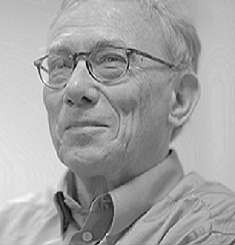40 million from Novo Nordisk Foundation to Plant Biochemistry
CONGRATULATIONS! No less than four scientists from Plant Biochemistry has received grants from the Novo Nordisk Foundation Nordic programme: Biotechnology-based Synthesis and Production which is part of the Foundation’s Research Leader Programme. The four scientists each receive close to 10 million DKK for the five-year grant.
Two Young Investigators
Assistant Professor Elizabeth Jakobsen Neilson:
LiftOFF! Optimizing plant FMOs for Future production An innovative and multi-disciplinary project aiming to characterize novel plant FMO enzymes for downstream use in industrial applications. FMOs (flavin-containing monooxygenases) constitute an important class of enzymes present in all kingdoms of life. FMOs modify bioactive molecules by incorporating molecular oxygen. In humans, this action facilitates the metabolism and detoxification of drugs and xenobiotics. By contrast, the role of plant FMOs is largely enigmatic, with only a handful of members characterized to date. This is highly surprising due to their expected involvement in fundamental processes such as hormone metabolism and plant immunity. LiftOFF! aims to characterize this highly valuable class of plant enzymes and identify novel bioactive molecules formed by the action of FMOs. Furthermore, this project will optimize FMOs as biocatalysts for biotechnology, improving enzyme reconstitution, stability and function.
An innovative and multi-disciplinary project aiming to characterize novel plant FMO enzymes for downstream use in industrial applications. FMOs (flavin-containing monooxygenases) constitute an important class of enzymes present in all kingdoms of life. FMOs modify bioactive molecules by incorporating molecular oxygen. In humans, this action facilitates the metabolism and detoxification of drugs and xenobiotics. By contrast, the role of plant FMOs is largely enigmatic, with only a handful of members characterized to date. This is highly surprising due to their expected involvement in fundamental processes such as hormone metabolism and plant immunity. LiftOFF! aims to characterize this highly valuable class of plant enzymes and identify novel bioactive molecules formed by the action of FMOs. Furthermore, this project will optimize FMOs as biocatalysts for biotechnology, improving enzyme reconstitution, stability and function.
Read more about Lizzie's work here.
Postdoc Tomas Laursen: The language of plant metabolic highways
Plants are  the supreme chemists that hold the key to ensure a future sustainable supply of medicine, food and energy. Plants sense and communicate with their environment using an elaborate “language” composed of a remarkable diversity of bioactive compounds. Specific production of such compounds involves on-demand assembly of enzyme complexes, metabolons, which facilitate the formation of metabolic highways. “The language of plant metabolic highways” focuses on elucidating how plants orchestrate the formation of metabolons. Our recently developed method for isolation of intact metabolons enables unprecedented snapshot analyses of their composition. This, in combination with single molecule microscopy will provide a unique insight into the dynamic metabolic machinery of plants. This has the potential to fundamentally change our view of how plants produce the remarkable diversity of bioactive compounds and bridges the knowledge-gap currently impeding optimized bio-production in microorganisms.
the supreme chemists that hold the key to ensure a future sustainable supply of medicine, food and energy. Plants sense and communicate with their environment using an elaborate “language” composed of a remarkable diversity of bioactive compounds. Specific production of such compounds involves on-demand assembly of enzyme complexes, metabolons, which facilitate the formation of metabolic highways. “The language of plant metabolic highways” focuses on elucidating how plants orchestrate the formation of metabolons. Our recently developed method for isolation of intact metabolons enables unprecedented snapshot analyses of their composition. This, in combination with single molecule microscopy will provide a unique insight into the dynamic metabolic machinery of plants. This has the potential to fundamentally change our view of how plants produce the remarkable diversity of bioactive compounds and bridges the knowledge-gap currently impeding optimized bio-production in microorganisms.
"I am very proud to have received this grant. It allows me to pursue my research interest within plant biochemistry and establish new collaborations with world leading scientists. Being a young and non-tenured scientist I am accustomed to short contracts with high pressure to deliver results, which favors studies on scientifically low-hanging-fruits. In contrast, the NNF Emerging Investigator Grant is a five-year program. It enables me to recruit three scientific staff and embark on some of the most challenging aspects within plant metabolism. I am very excited about the coming years." ~ Tomas Laursen
Read more about Tomas' work here.
Ascending Investigator
Associate Professor Sotirios Kampranis:
Biotechnological production of structurally complex plant high-value compounds
Plant natural products are complex chemical compounds with important applications as pharmaceuticals, flavours, fragrances and colorants. Production of plant natural product s in engineered microorganisms is an economic and sustainable alternative to inefficient chemical synthesis and limited natural resources. However, many valuable plant natural products, such as those used as pharmaceuticals, have very complex structures and their biosynthesis involves a large number of steps, hindering their biotechnological production. Our work aims to develop the tools and methods to efficiently produce complex plant natural products in the yeast Saccharomyces cerevisiae. Using the potent anticancer agent taxol as a prototype, we will develop continuous in vivo mutagenesis-based evolution, dedicated biosensors, optogenetically-controlled compartmentalization, and bioassay-coupled combinatorial biosynthesis to establish a blueprint for the successful biotechnological production of structurally complex plant natural products.
s in engineered microorganisms is an economic and sustainable alternative to inefficient chemical synthesis and limited natural resources. However, many valuable plant natural products, such as those used as pharmaceuticals, have very complex structures and their biosynthesis involves a large number of steps, hindering their biotechnological production. Our work aims to develop the tools and methods to efficiently produce complex plant natural products in the yeast Saccharomyces cerevisiae. Using the potent anticancer agent taxol as a prototype, we will develop continuous in vivo mutagenesis-based evolution, dedicated biosensors, optogenetically-controlled compartmentalization, and bioassay-coupled combinatorial biosynthesis to establish a blueprint for the successful biotechnological production of structurally complex plant natural products.
Read more about Sotirios' work here.
Distinguished Investigator
Professor Birger Lindberg Møller: The Black Holes in the Plant Universe
W e are currently moving rapidly into “The Plantroprocene Era” where fossil fuels must be replaced with bioproduction. Green photosynthetic organisms play a vital role in this transition as providers of both food, biomaterials and energy as well as essential medicines, nutraceuticals, condiments and colorants. These molecules are typically produced in very small amounts in the plants, making extraction difficult and harvest in nature unsustainable. However, some plant species like the vanilla orchid and sorghum possess an intriguing ability to produce and store some of these rare and sparingly soluble substances in liquid form at seemingly impossibly high concentrations in bio-condensates – “Black Holes”. This research initiative aims to elucidate the unknown mechanisms in the plant cell that orchestrate the establishment of such “Black Holes” and define new options for future plant-based production of high-value natural products. The knowledge gained will bring our understanding of molecular mechanisms determining plant plasticity to an entirely new level and guide development of crops with increased robustness to climate change.
e are currently moving rapidly into “The Plantroprocene Era” where fossil fuels must be replaced with bioproduction. Green photosynthetic organisms play a vital role in this transition as providers of both food, biomaterials and energy as well as essential medicines, nutraceuticals, condiments and colorants. These molecules are typically produced in very small amounts in the plants, making extraction difficult and harvest in nature unsustainable. However, some plant species like the vanilla orchid and sorghum possess an intriguing ability to produce and store some of these rare and sparingly soluble substances in liquid form at seemingly impossibly high concentrations in bio-condensates – “Black Holes”. This research initiative aims to elucidate the unknown mechanisms in the plant cell that orchestrate the establishment of such “Black Holes” and define new options for future plant-based production of high-value natural products. The knowledge gained will bring our understanding of molecular mechanisms determining plant plasticity to an entirely new level and guide development of crops with increased robustness to climate change.
"I am really excited about the award of four grants from the Novo Nordisk Foundation to the Plant Biochemistry Laboratory. We want to develop sustainable production systems based on photosynthesis using carbon dioxide from the atmosphere as the sole carbon source. With this grant we can demonstrate how to link photosynthesis-based production of high value compounds to their efficient storage in cyanobacteria and chloroplasts in dense bio-condensates. Grants like this from the Novo Nordisk Foundation enable us to carry out pioneering research and thus to stay at the forefront internationally. Without such, the University of Copenhagen would lose its high international rankings." ~ Birger Lindberg Møller
Read more about Birger's work here.
Research Leaders
The grants are part of the Novo Nordisk Foundation’s Research Leader Programme that have recently granted more than 413 million DKK to 44 research leaders
Read more about the program here:
NNF announcement:
https://researchleaderprogramme.com/news/the-novo-nordisk-foundation-awards-dkk-99-million-to-excellent-research-leaders-within-biotechnology-based-synthesis-and-production-research/?fbclid=IwAR2X4z8AI65YFjPe5nxJJUhLDPcvMfqdp8LLWOy7v3suJsoOAwI4_TgFC-Q
Article in Jyllandsposten: https://finans.dk/erhverv/ECE11361460/novoejer-kaster-400-mio-kr-efter-danske-toptalenter/?ctxref=forside
